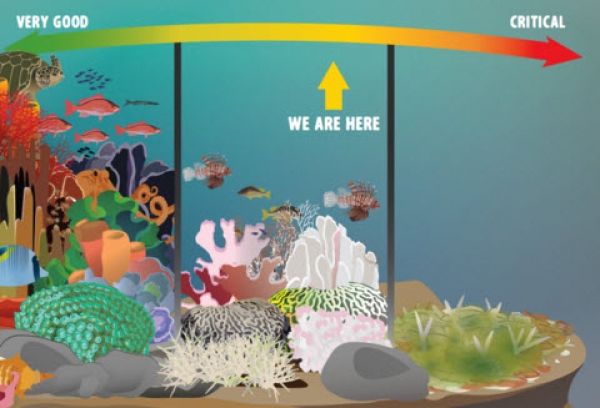Coral reefs in both the Pacific and Atlantic oceans received a “fair” score in the first-ever condition status report for U.S. coral reefs released by the National Oceanic and Atmospheric Administration (NOAA) and the University of Maryland Center for Environmental Science (UMCES) today. While the overall scores were “fair,” the report highlights coral reefs are vulnerable and declining. This is the first time coral reefs in all U.S. states and territories have been assessed using standardized monitoring data, creating datasets that offer a baseline of coral health on a national scale.
The U.S. Coral Reef Condition Status Report was developed by NOAA's National Coral Reef Monitoring Program and UMCES’s Integration and Application Network using data collected between 2012 and 2018. The scores are denoted as “very good,” “good,” “fair,” “impaired,” and “critical.” The report was based on four categories when assigning a score: corals and algae abundance, reef fish populations, influence of climate on coral reefs, and human connections to reefs.
"Considering the more than $3.4 billion in annual economic benefits of coral reefs, these reports and the policy actions that they will inform are critical to our American Blue Economy,” said retired Navy Rear Adm. Tim Gallaudet, assistant secretary of commerce for oceans and atmosphere and deputy NOAA administrator.
Continue reading at University of Maryland Center for Environmental Science
Image via University of Maryland Center for Environmental Science


